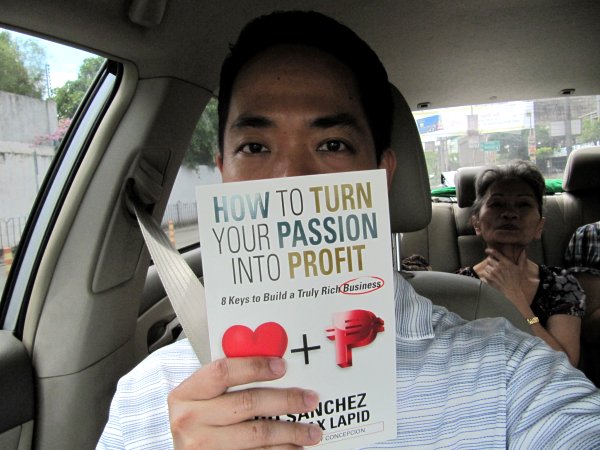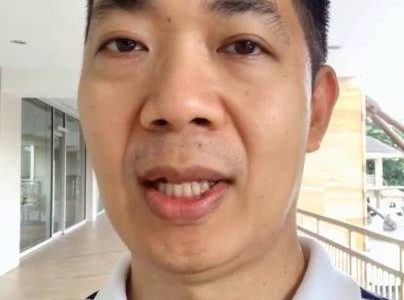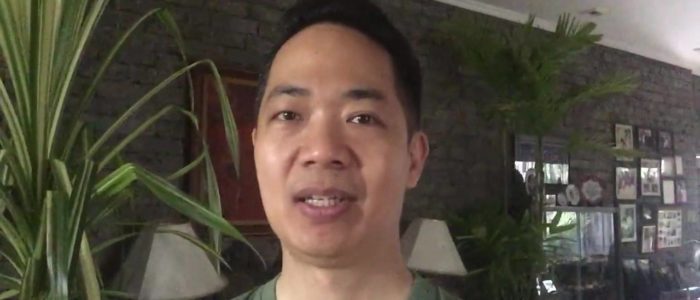NMT Chapter 09: Some Country Matters (See other Noli Me Tangere Chapter Summaries)
(Napanuod mo na ba yung kwento ni Pareng Ed, isang masipag at matiyagang OFW na naubos ang pera nung na-ospital ang kanyang anak, pero nakabangon mula sa kahirapan gamit ang isang… panuorin mo ang kwento niya dito.)
Ibarra sees Padre Damaso riding in his victoria, a low, light, four-wheeled carriage (with a foldable calash top, seating for two passengers and a perched seat in front for the driver. See photo). Padre Damaso, on the other hand, sees Tia Isabel and Maria Clara (they were going to the convent to get Maria Clara’s things).
This chapter focuses on three major conversations between or among:
Padre Damaso and Capitan Tiago (in Tiago’s house/office)
Padre Hernando Sibyla and an old, extremely sick Dominican (in Intramuros)
Capitan Heneral and his men
Padre Damaso and Capitan Tiago
Padre Damaso does not want Maria Clara to marry Ibarra and is displeased with Capitan Tiago for not informing him of a marriage agreement made with Don Rafael (Ibarra’s father). It is unclear why Capitan Tiago chose not to consult with Padre Damaso about such an agreement in the past. But, true to his form, Capitan Tiago obeys the priest and extinguishes the candle he previously ordered lit for Ibarra’s safe journey to San Diego (Ibarra’s hometown).
(For those unfamiliar with this practice, a candle is usually lit and placed on an altar, sometimes in front of the Blessed Virgin Mary. Some prayers are said for someone’s safe journey, since there were bandits about and who knows what other dangers lurk at each bend. As long as the candle remained lit, it was believed that the traveler was protected.)
The chapter ends with Tiago blowing out the candle and muttering that there is still time and the journey is long. (What a future father-in-law, eh?)
Padre Sibyla and the Very Sick, Old Dominican
We don’t know what the old priest is sick of, but that’s not the point of this chapter. Here we see the Ibarra is completely unaware that the priests are plotting against him. Those Dominicans are deathly afraid of Ibarra because they know he–with his education–is not ignorant of his situation. Also, Ibarra might later rise as a leader for the indios.
The Dominicans, knowing about the misfortune of Don Rafael and knowing character of Ibarra, already foresaw the brewing conflict between the young man and Padre Damaso.
Nevertheless, the Dominicans were confident about controlling Ibarra, through Maria Clara and Capian Tiago. Or so thought the old priest.
Padre Sibyla sees Ibarra as someone with finesse (good breeding). Afterall, Ibarra was quite subtle in his verbal fight with Padre Damaso earlier. Sibyla also considers Ibarra as an “obedient child” who will not fight outright with the friars.
The old Dominican mentioned that he prefers an open fight rather than the useless praise of his friends, which tends to make the priests soft and unaware that they are starting to lose their hold on the people.
(So watch out when things seem to go too well for you. You’ll never know… After all, whom the gods wish to destroy, they first make mad.)
Also, since the Spanish government is concerned with maintaining power over the Philippines, they will help the priests if ever the indios rise in revolt. If there is no conflict, however, the government might not see the need for the Spanish priests, and will just rely on the Filipino priests to keep the rest of the population timid.
Padre Sibyla worries, however, that the government might side with the indios. Remember that the Church and State are not really the best of friends:
- The friars murdered Capitan Heneral Bustamante in Malacanan before.
- Capitan Heneral Ma. de la Torre was well-loved by the indios because he was just (and didn’t always support the friars).
Realize that the Filipinos lacked two important things in their bid for political justice and economic freedom:
Lack of country-wide unity. The people were geographically scattered by the Spaniards.
No identified Leader.
Anyway, note Rizal’s dig at the frailocracy when the priest uttered that God should have mercy on them (the priests).
Capitan Heneral and his men
The Capitan Heneral was aware of the insulting remarks made by Padre Damaso against him, because Laruja (the writer) told the Capitan Heneral’s adjutant about it. The story did not come from Teniente Guevara because it was beneath him to “snitch” on Padre Damaso.
(In the vernacular, he did not want to make “sipsip” to the Capitan Heneral.)
The Capitan Heneral revealed to his men that he was unhappy with the situation in the Philippines and that the country should be thrown into chaos so that the priests can be kicked out, just as was done by the Europeans to the priests there.
However, reasoned the Capitan Heneral, since this was the fate of the Philippines, he decided to just close his eyes to the matter, just as his predecessors did.
(Do you want to know how other Pinoys are succeeding online? Read this.)
Kind regards,
Manny M. Viloria




